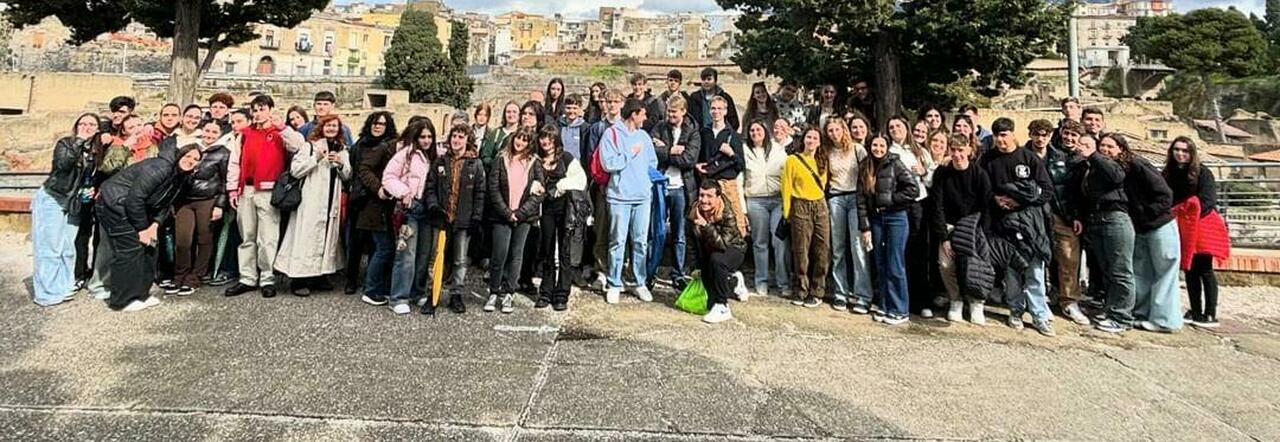With the arrival of spring, the PCTO - Pathways for transversal skills and orientation - educational programs restart at the Herculaneum Archaeological Park, targeting educational institutes in the Vesuvian area with which agreements have been made in collaboration with the managers and teachers, aiming to meet the training needs of each partner Institute's study programs and to contribute to the cultural education of the citizens of the UNESCO site territory, increasing their awareness of being proactive members of a heritage community.
4 institutes will participate, involving a total of 345 students to whom the Park will dedicate, with its own staff and the contribution of teachers, a total of 8,985 hours made of site visits and a lot of practical educational activity.
The Director of the Park, Francesco Sirano, comments: «Today's youth have the invaluable opportunity to approach the world of work during their own education. Perhaps vocations will emerge or, more likely, participants will have the chance to experience firsthand the complexity and charm of teamwork and multidisciplinary work like the one we conduct at Herculaneum. Being actively involved in the activities of a UNESCO site, getting to know closely the many professions revolving around it, will be a stimulus to be inspired and, at the same time, to remain a friend of this extraordinary place of culture».
The design of the activities is oriented on one hand towards the needs of the Park, and on the other, it presupposes the definition of training needs based on the knowledge of the territory and the evolution of the world of work.
From March to May 2024, young people will be on site learning to welcome visitors from all over the world, speaking the most widely spoken foreign languages; they will approach the study of audiences and their needs; design multimedia tools; participate in archaeological study and research activities on materials from the excavations or perform surveys with new rapid technologies.
«The teaching methodology we have implemented excites us – adds Francesco Sirano – and we look forward to appreciating the results to also improve and learn from these unique experiences, just as unique are our young students.»

